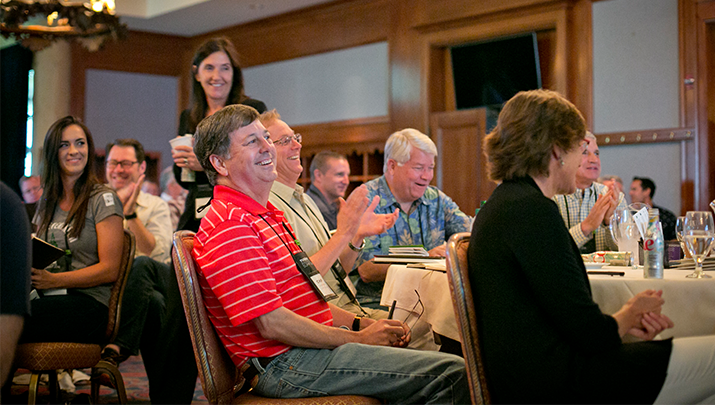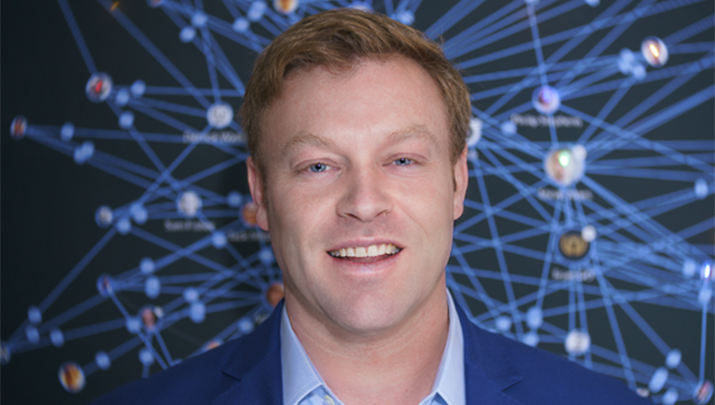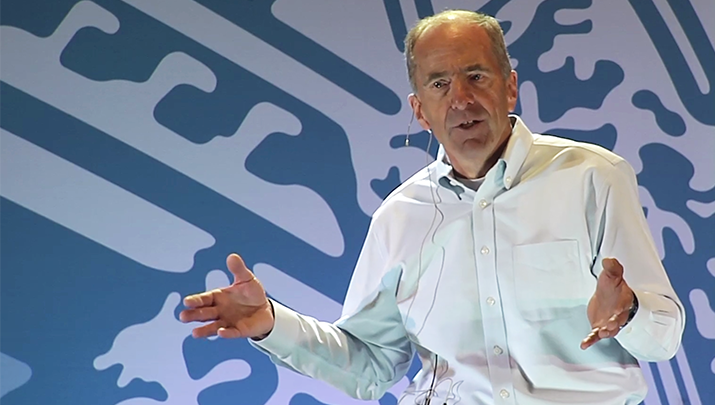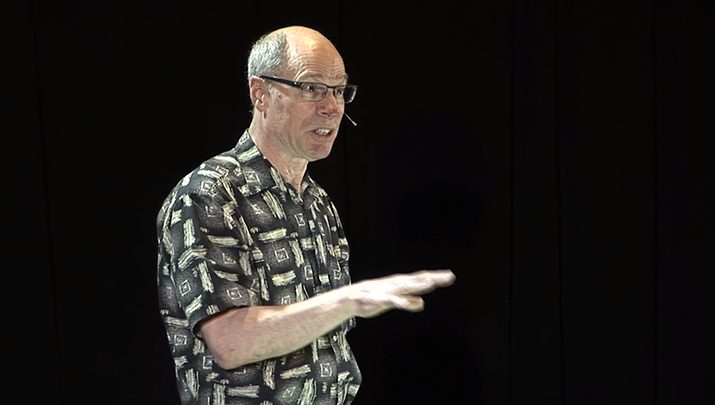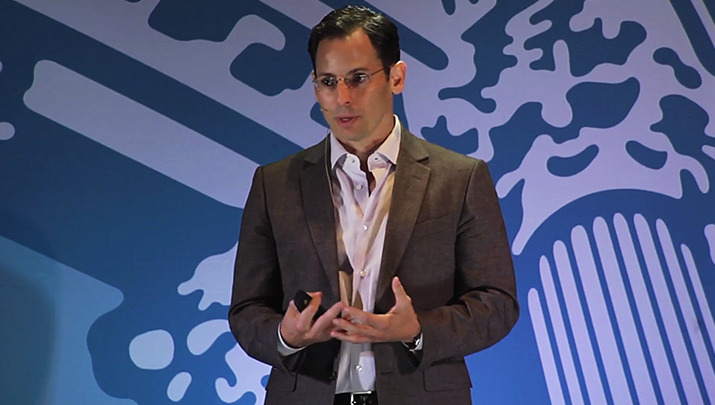What Evergreen Means to Me
At the Tugboat Institute, we live our Purpose: To build a trusted community of Evergreen CEOs and executives who share with each other their inspirations, best practices, unique insights and support. At our past Tugboat Institute Summit, we asked several of our members, “What does being Evergreen mean to you?” We found their replies inspirational and are thrilled to share the gift of their answers here with you.
Atlas Shrugged: Amy’s Empowers
After college, the ice cream company where Amy Simmons worked was sold to a new owner. Overnight, the culture changed. Because of that experience, she vowed to build a better business, one that sold delicious products but also provided a great work environment. Thirty-two years later, Amy’s Ice Creams is a Texas institution known for both its super-premium award-winning ice creams and its dedication to putting People First. She’s also turning the idea of successful enterprise on its head.
In her Tugboat Institute Summit 2016 talk, Simmons shares her passion for creating an empowered culture built on training, trust and financial and business literacy. The result: a thriving, high-performance, happy workforce that pays it forward in their families and communities.
After Success: What’s Next?
For Evergreen entrepreneurs, building a company that will last more than 100 years means taking great care with transitions such as transferring leadership within our businesses and transferring wealth, values and stewardship within our families.
In his Tugboat Institute Summit 2016 talk, Dennis Jaffe of Wise Counsel Research encourages business owners to treat their children like partners instead of subordinates — and to speak frankly about money. By fostering a spirit of transparency, engagement and shared learning, he says, Evergreen leaders will inspire a future generation of courageous business innovators.
Power of People-Driven Leadership
The food industry is notoriously difficult with thin margins, disappearing trends and a constantly rotating employee base. But Erin Wade has found a way to use the industry to build opportunities not only for herself but also for others. As co-founder and CEO of Homeroom, her full-service mac-and-cheese restaurant, she is building a unique culture within her industry. As a savvy Evergreen entrepreneur, she is creating a highly profitable growth business to fulfill her own aspirations and fostering a culture her employees value. And, Homeroom’s profitability puts it in the top 5 percent of performers in the industry.
In her talk, Erin shares her experience in building the culture of incredible food and fairness to all employees regardless of their role through recruiting, education and transparency. She also explores the challenge of how to maintain all this goodness as she grows beyond her first location in Oakland.
What Evergreen Businesses Can Learn From the Navy Seals
Successful military units must be ever mindful of their surroundings and quick to adapt as circumstances change. The same is true of successful businesses. David Silverman, the founder and CEO of CrossLead, and a former U.S. Navy SEAL, applies many of the lessons he learned fighting in Iraq, Afghanistan and Southeast Asia to his current mission: teaching companies how to adapt and win in their shifting environments.
Silverman explains how major recent changes in the collective business environment—including interdependency and a greater need for speed—can make or break an Evergreen company, depending on how it reacts to them. He also breaks down how businesses can use new, tested military principles and approaches to achieve their objectives.
Even Evergreen CEOs Need To Think About Exits
One of the central tenets of Evergreen businesses is that they stay private. But that doesn’t mean there will never be an exit in the form of a change in leadership. For his book “Finish Big,” author Bo Burlingham spent years talking to entrepreneurs about the best way to exit — whether through a sale or by passing the company on to the next owners. His advice: Start preparing for an exit years in advance.
Burlingham explains that in order to leave happy, you need to view your exit as another natural phase of the business, not a sudden event. By knowing yourself and your purpose and doing right by the people who have shared your journey, you can create a happy, satisfying life for yourself after your exit.
An Evergreen Empire Built On Stewardship, Restraint And Reverence (VIDEO)
In the 1950s, Earl and Carol Holding moved to the Wyoming desert to take over a failing gas station/motel/cafe. That was the first step toward building what Tim Silva calls an "incredible empire" that includes Sun Valley Resort, the home base for Tugboat Summit and Sinclair Oil Corp. Silva, the resort's general manager, says the Holding family used core Evergreen principles to grow their assets.
The conservative couple initially clashed with this free-spirited mountain town, but by investing in the resort and its people, becoming active members of the community and preserving the natural beauty of their surroundings, they earned the community’s respect.
What Distinguishes A Great Place to Work
What separates good workplaces from great ones? After 30 years of analyzing happy and efficient companies, Robert Levering, co-founder of Great Place to Work, has a few ideas.
The common denominator, he says, is trust. The three levels of trust for employees are: credibility of management, what does management think of me and knowing there is a level playing field. Evergreen leaders can use Levering’s insights to create an environment where employees are engaged, satisfied and productive.
How An Evergreen Company Passed The Torch
An Evergreen business eventually comes with a unique challenge: smoothly transferring control and ownership. At 75, Andrew Kawaja’s father still comes to work each day at IFS Industries, the company he founded in 1972. But the senior Kawaja has already successfully completed the leadership transition to his three sons.
Andrew Kawaja explains how his family's enterprise has stayed true to its founding principles and navigated the culture war that he calls inherent in a generational transfer. In his talk, Kawaja details the three core rules his family has followed for a prosperous and harmonious succession.
Cartographer Of Opportunity
Because Evergreen entrepreneurs don't have the promise of a looming exit and payout to attract and retain top talent, they must turn to something else. "That something else, to me, is human nature," says Quest Nutrition co-founder and president Tom Bilyeu. He says that one of the biggest problems business leaders face is a failure to acknowledge human nature and use it to their advantage. "Values and identity drive behavior," says Bilyeu. "Your job is to create, define, explain and get your employees to embody a core set of values." If a company hasn't outlined its values, employees will act in accordance with their own — which opens the door to discord and ineffectualness.
Bilyeu explains how he helps employees pull in the same direction as his company, and why he's more than happy to help poor cultural fits find a job that works better for them.
